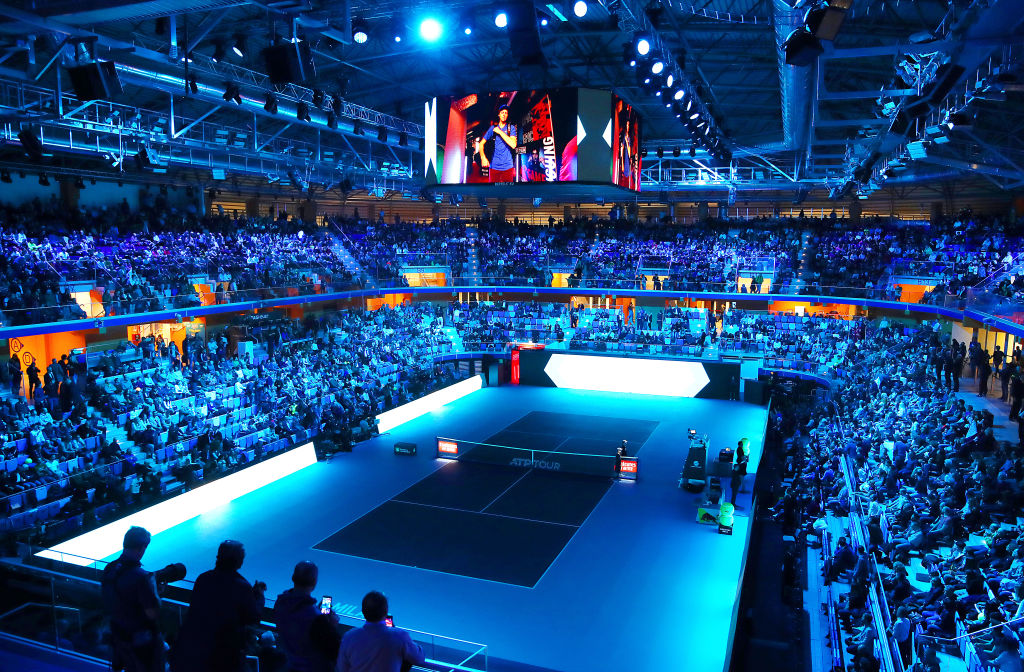How Cricket and Tennis are selling their soul trying to become Football

Getty
The song ‘Master of Puppets’ by Metallica has 227,568,899 streams on Spotify. On the other hand, Billie Ellish’s ‘Bad Guy’ has more than a billion streams on the same platform, five times more than that of Metallica’s masterpiece. There’s a reason for it, though.
Heavy metal and Progressive Rock - the latter, in particular - are two of the more complex genres in the art of music. The overlong albums, belligerent lyrics and the sophisticated nature of the songs often fail to capture the heart and drives away the masses, who are more attracted towards the consumer-friendly, penny-plain and peppy pop songs. Hence, it is unsurprising and only natural that pop music, over the course of the last few decades, has garnered the attention of millions and captured the market and sits at the very top uncontested.
Heavy metal musicians know that they have their own fanbase and, due to the aforementioned facts, don’t stand a chance of appealing to, as Noel Gallagher so eloquently put it, the squares. Hence, they do not ever try to alter their style to attract or accommodate the commoners, as they know for a fact that it would come at the cost of the loyalists who would be driven away. The sporting equivalent of these three genres are Cricket, Tennis and Football.
While it is a known fact that the popularity of both cricket and tennis has grown tenfold over the course of the last 50 years, increasing its viewer-base by millions, the reach, extensiveness and audience of these two sports are still petite compared to football which has built a dynasty of its own. Take this data for example - the number of people who watched the 2018 FIFA World Cup Final were more than twice the number of people who watched the ICC Cricket World Cup 2019 AND Wimbledon 2019 Final combined. Till date, the dynasty remains unperturbed.
The administrators of cricket and tennis, however, don’t have a great understanding of reality, are not quite satisfied with what they have. So, unlike the wise Heavy Metal musicians, they are willing to sacrifice the sanity, compromise the values and the ethics that their respective sports stand for in a desperate attempt to appeal to the wider "common folk" . To put it in simple words, the two sports have shown clear signs that they are willing to ‘sell their souls’ to capture the market.
Be it uber-quick delivery of food or same-day delivery of products or even the Netflix-adopted strategy of releasing every episode on a single day, the concept of time, in today’s day and age, is used as a marketing ploy to sway the consumers. Ask yourself the question: Are you more likely to order from a restaurant that takes an hour to deliver the food or something that instead gives it to you under 25 mins - even at the cost of quality? ‘The faster, the quicker, the more attractive’ is a tried and tested mantra that products around the world are now adhering to and so both cricket and tennis have used the same strategy as the focal point in their first step to allure the common herd.
The Next Gen ATP Finals, Abu Dhabi T10 League and the rather controversial ‘Hundred’ are three concepts which have been devised with the primary aim being that of appealing to the ‘casual-watcher’ and people outside of the sport who wouldn’t otherwise dare tune in to a bilateral ODI match or an ATP 250 event. The Next Gen ATP Finals, for instance, has a lot of ridiculous rules that make no sense, such as players playing on despite the serve hitting the net cord, no ‘ad scoring’ etc, but its ultimate goal is to give viewers the same amount of thrill, drama and action in almost half the time.
This has been implemented by increasing the number of sets to 5 and reducing the number of games needed to win a set from 6 to 4 (tie-break at 4-4). However, in reality, all it has ended up achieving is killing the phenomenon of comebacks by putting momentum on a pedestal; The ‘first to 4’ games concept means that a player is all but done for the set after going a break down, mortalizing the idea of ‘heroic comebacks’, one that has been, over the years, the cornerstone of every great Tennis match. By scrapping the concept of ‘deuce’, both the fans and players are also being deprived of the tussles that are seen at 40-40, with both players desperately trying to wrestle their way to string two points together.
Both T10 and ‘The Hundred’ also have one ultimate aim - that of attempting to sandwich three hours (or more) of entertainment into an hour and serving it to the consumers on a platter. The T10 concept, in specific, has marked the death of the art of new-ball bowling with the ball and sheet anchoring with the ball, for the format demands batsmen to swing the bat like bolshie maniacs from the very first ball, meaning the bowlers, in turn, have to switch to defensive tactics to combat the same.

 © Getty
© GettyThe alarming thing, however, is the whole ‘experimentation’ is not bound to end anytime soon, for it’s not something that has come out of the blue. Our minds, over the course of the last few years, have been infiltrated and manipulated with so much that our whole conceptualization of the term ‘entertainment’ has been redefined.
Cricket’s ploy to tilt the limited-over games irrationally in favour of the batsmen - from the introduction of two new-balls, batting powerplays, shortened boundaries - and tennis’ strategy, of late, to make itself look like a team sport by bringing together star power - from the introduction of the Laver Cup to the remodelling of the Davis Cup to the newly-launched ATP Cup - are both well-thought-out, calculated moves. The reasons for doing that are self-explanatory, for, by now, the gist of it must be pretty clear. Cut the long story short - it draws you to the screen, attracts you and keeps you hooked to it.
But perhaps the most concerning of all might be the ICC’s latest proposal to move to ‘four-day Test matches’ - which has been publicly ridiculed by current and former greats of the game - and the persistent cries from a section of the well renowned, top ATP journalists to make Grand Slam matches a three-set affair. The greatest of great Grand Slam matches have ended in the fifth set; the most nerve-wracking, gut-wrenching classics have ended late on the fifth day.
Both the ICC and the ATP, by even being open to discussions on reducing Grand Slam matches to three-set affairs or scrapping the fifth day of Tests are all but outrightly disrespecting the sport, its fans, the traditions. They are ripping its soul out right in front of our eyes just to catch the attention of the next-door neighbor who wouldn’t otherwise bother to check on them.
Of course, it goes unsaid that reinvention is a commodity necessary for long-term sustainability, and experimentation serves as a tool for the same. But at what cost should it come and how far should it be stretched, is a question that must be asked. Is it really worth sacrificing the century-long traditions and the values that the sport has abided by, just to charm the multitude?
By no means am I an ‘elitist’ or a ‘purist’, for I still enjoy every bit of action that both sports have to offer, but the line between globalization through experimentation and being a ‘sell-out’ is a thin one, and as of this moment, there are clear warning signs that both the sports are at the risk of drifting towards the latter.
Perhaps, no analogy would fit the current situation better than Bill Burr's view on 'fixing' the NHL: "They've always had this conversation (in NHL) on how do you fix the game and how do you take it to the 'next level'. There's nothing wrong with (how) it (is). I don't think it's a B+ because it's making less money. That's only a marketing ploy. 'We're only multi-millionaires, how do we become billionaires?. Why can't you just be happy being millionaires? When you try to become super popular, it goes off the rails."
In 50 years time, four-game three-set and 10-over matches might be all that’ll exist and both cricket and tennis may very well be at the top of the ranking charts. But when the general mob eventually grows tired of them, crushes them, tosses them into the trashcan and moves on to the next commodity, maybe then the two sports will realize that just like the Heavy Metal musician, they should have stuck to the goddamn eleven-minute song that really made them who they were.
